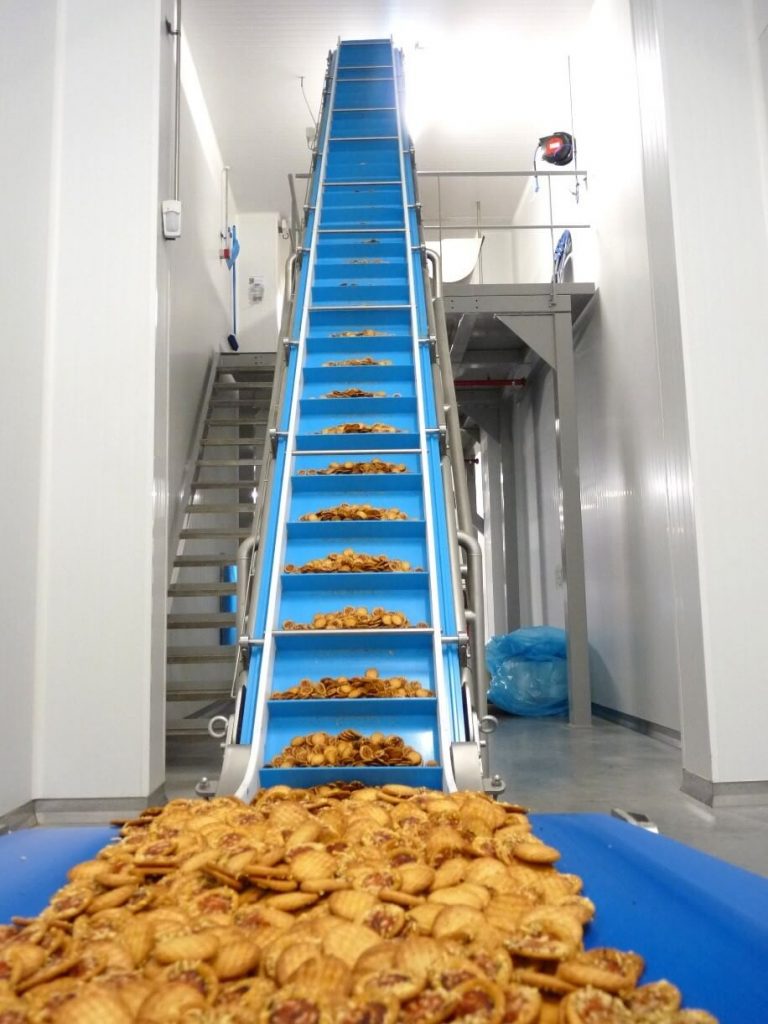The Best Conveyor Machine in 2023
Conveyor machines play a crucial role in various industries by automating the movement of goods and materials. They are widely used in manufacturing plants, warehouses, distribution centers, and other settings where efficient and safe transportation of items is required. In this article, we will explore the different types of conveyor machines, their benefits, factors to consider when choosing one, popular applications, and how to optimize their performance.
Introduction
Conveyor machines are mechanical devices designed to transport goods, products, or materials from one location to another. They eliminate the need for manual handling and enable the continuous flow of items, improving efficiency and productivity in various industries. With advancements in technology, conveyor machines have become more advanced, reliable, and versatile, making them an essential component of modern material handling systems.
What is a Conveyor Machine?
A conveyor machine consists of a framework or structure that supports a continuous belt, chain, or other types of moving surfaces. These surfaces are used to transport items along a predetermined path, either horizontally, vertically, or at an incline. Conveyor machines can be powered by motors, gravity, or a combination of both, depending on the specific application and requirements.
Types of Conveyor Machines
Belt Conveyors
Belt conveyors are the most common type of conveyor machines. They feature a continuous loop of material, typically made of rubber, that moves over two or more pulleys. Belt conveyors are versatile and suitable for transporting a wide range of products, from small items to heavy loads. They are commonly used in industries such as manufacturing, mining, agriculture, and logistics.
Roller Conveyors
Roller conveyors consist of a series of rollers mounted on a frame. They are ideal for conveying items with a flat and stable bottom surface. Roller conveyors can be powered or gravity-driven, providing flexibility in design and configuration. They are often used in warehouses, distribution centers, and assembly lines for moving cartons, totes, and pallets.
Screw Conveyors
Screw conveyors utilize a helical screw blade to move materials. They are particularly effective for handling bulk solids, powders, and granular materials. Screw conveyors are used in industries such as agriculture, food processing, and chemical manufacturing. They offer gentle handling of materials and can be designed to accommodate various angles and inclinations.
Chain Conveyors
Chain conveyors use a chain as the driving element to transport items. They are suitable for heavy-duty applications and can handle rugged and abrasive materials. Chain conveyors are commonly found in industries such as automotive, steel, and mining, where durability and high load capacity are crucial.
Pneumatic Conveyors
Pneumatic conveyors use air pressure or vacuum to transport materials through a pipeline system. They are efficient for handling lightweight and powdered materials over long distances. Pneumatic conveyors are commonly used in industries like pharmaceuticals, plastics, and chemical processing, where cleanliness and containment are essential.
Benefits of Using Conveyor Machines
Using conveyor machines offers numerous benefits for businesses. Let’s explore some of the key advantages:
Increased Efficiency and Productivity
Conveyor machines automate the process of transporting goods, eliminating the need for manual labor. They enable a continuous flow of items, reducing bottlenecks and improving overall efficiency and productivity. By streamlining material handling processes, businesses can save time and increase output.
Cost Savings
Implementing conveyor machines can lead to significant cost savings in the long run. They reduce the reliance on manual labor, minimizing labor costs and the risk of injuries associated with manual handling. Conveyor machines also optimize space utilization, allowing businesses to maximize their operational efficiency.
Improved Safety
Manual handling of heavy or bulky items can pose risks to workers’ health and safety. Conveyor machines eliminate the need for manual lifting, reducing the likelihood of workplace injuries. They also come with safety features such as emergency stop buttons and protective guards to ensure a safe working environment.
Versatility and Flexibility
Conveyor machines are highly versatile and can be customized to meet specific requirements. They can handle a wide variety of products, from small and delicate items to heavy and bulky loads. Conveyor systems can also be designed to navigate curves, inclines, and declines, adapting to the layout of the facility.
Factors to Consider When Choosing a Conveyor Machine
Selecting the right conveyor machine for your business is crucial. Consider the following factors to make an informed decision:
Material Handling Requirements
Evaluate the type, size, and weight of the materials you need to transport. Different conveyor machines are designed for specific materials, so choose one that can handle your products efficiently and safely.
Conveyor Speed and Capacity
Determine the required conveyor speed and capacity based on your production needs. Ensure that the selected machine can handle the desired throughput without causing bottlenecks or overloading.
Durability and Maintenance
Invest in a conveyor machine that is durable and requires minimal maintenance. Consider factors such as the quality of materials used, ease of cleaning, and availability of spare parts.
Integration with Existing Systems
If you have existing material handling systems or processes in place, ensure that the chosen conveyor machine can integrate seamlessly with them. Compatibility and ease of integration are essential for optimizing overall efficiency.
Popular Applications of Conveyor Machines
Conveyor machines find applications in a wide range of industries. Here are some popular uses:
Manufacturing and Assembly Lines
Conveyor machines are extensively used in manufacturing and assembly lines to transport components between different workstations. They ensure a smooth and continuous flow of materials, improving production efficiency.
Warehousing and Distribution Centers
In warehouses and distribution centers, conveyor machines facilitate the movement of goods from receiving areas to storage locations and eventually to shipping areas. They streamline order fulfillment processes and enable fast and accurate order picking.
Food Processing Industry
Conveyor machines play a vital role in the food processing industry, ensuring hygienic and efficient handling of food products. They are used for tasks such as sorting, washing, drying, and packaging food items.
Mining and Construction
In mining and construction sites, conveyor machines are used to transport bulk materials such as ores, rocks, and construction aggregates. They enable the efficient movement of materials over long distances and challenging terrains.
Airport Baggage Handling
Conveyor systems are an integral part of airport baggage handling systems. They transport passenger luggage from check-in counters to sorting areas, loading zones, and ultimately to the appropriate aircraft.
How to Optimize thePerformance of Conveyor Machines
To maximize the performance of conveyor machines, consider the following strategies:
Regular Maintenance and Inspection
Implement a proactive maintenance schedule to keep the conveyor machine in optimal condition. Regularly inspect and clean the components, such as belts, rollers, chains, and motors. Replace any worn-out parts promptly to prevent unexpected breakdowns.
Proper Training for Operators
Ensure that the operators are trained on how to operate the conveyor machine safely and efficiently. Provide training on troubleshooting common issues, adjusting settings, and performing routine maintenance tasks. Well-trained operators can identify and address minor problems before they escalate.
Monitoring and Control Systems
Integrate monitoring and control systems to track the performance of the conveyor machine. Use sensors and automation technologies to monitor factors such as speed, throughput, and energy consumption. This data can help identify bottlenecks, optimize operations, and detect potential maintenance issues.
Upgrading and Automation Options
Stay updated with the latest advancements in conveyor technology. Consider upgrading or automating your conveyor system to enhance performance and efficiency. Modern technologies, such as computerized control systems and predictive maintenance algorithms, can optimize operations and reduce downtime.
Conclusion
Conveyor machines are indispensable in today’s industrial landscape, offering efficient and safe transportation of goods and materials. With various types to choose from, businesses can select the conveyor machine that best suits their specific needs. By leveraging the benefits of conveyor machines and implementing optimization strategies, businesses can enhance productivity, reduce costs, and improve overall operational efficiency.
FAQs Conveyor Machine
Q: Are conveyor machines suitable for transporting delicate items?
A: Yes, conveyor machines can be designed to handle delicate items by incorporating features such as cushioned belts, adjustable speeds, and gentle handling mechanisms.
Q: Can conveyor machines be customized to fit specific space constraints?
A: Yes, conveyor machines are highly customizable and can be designed to fit various space constraints. They can be configured to navigate around obstacles and adapt to the layout of the facility.
Q: How often should conveyor machines be inspected and maintained?
A: It is recommended to conduct regular inspections and maintenance on a scheduled basis, depending on the usage and the manufacturer’s recommendations. This helps identify potential issues and ensures optimal performance.
Q: Can conveyor machines be integrated with other automated systems?
A: Yes, conveyor machines can be integrated with other automated systems such as robotics, sorting machines, and packaging equipment to create a seamless material handling process.
Q: What are the energy consumption considerations for conveyor machines?
A: Conveyor machines can vary in energy consumption depending on factors such as load capacity, speed, and motor efficiency. Implementing energy-efficient motors and optimizing operational settings can help reduce energy consumption.
Contact Us For Free Quote
Email: sales@magnatechengg.com
Tel: +97143404243
Mobile: +971 50 633 8365


